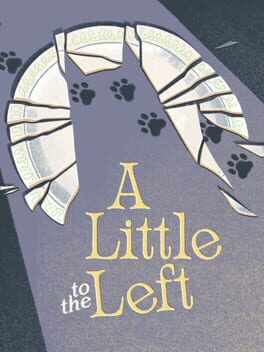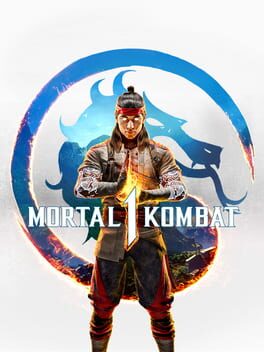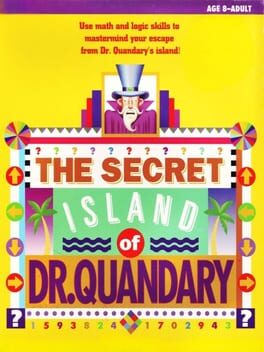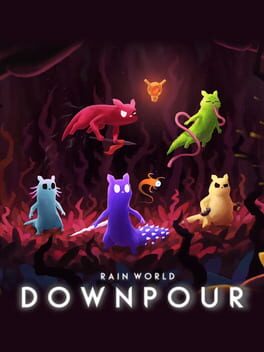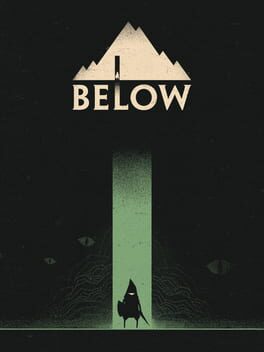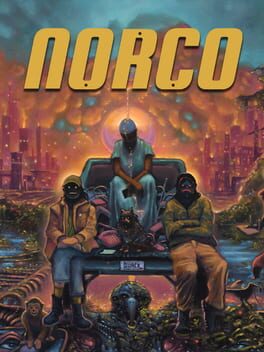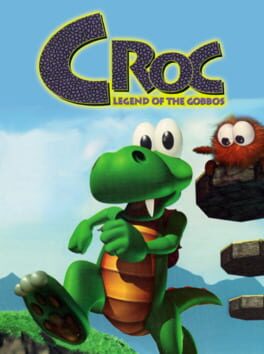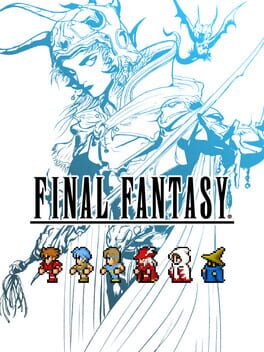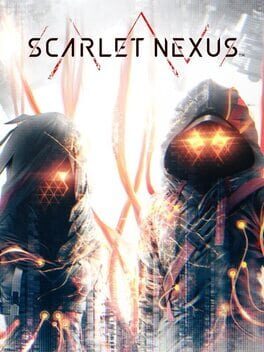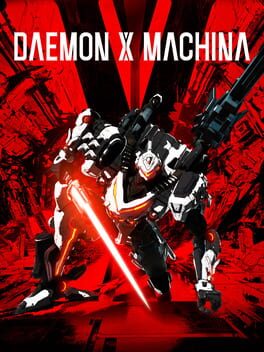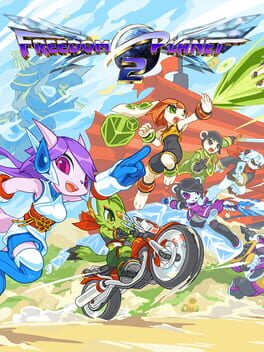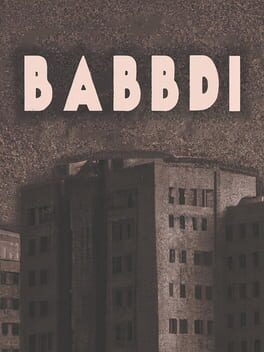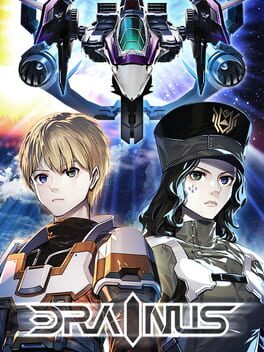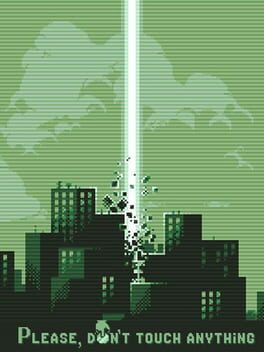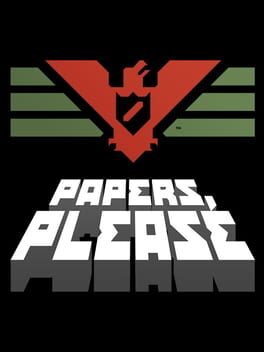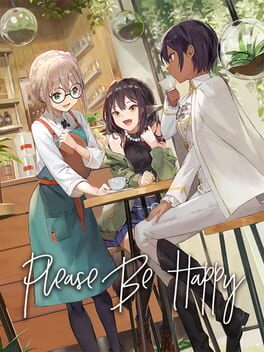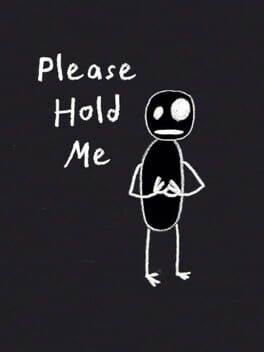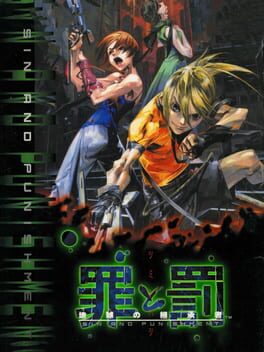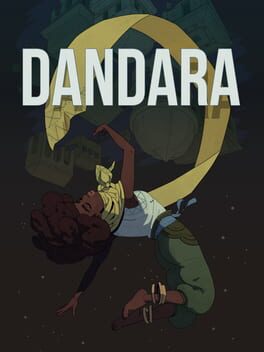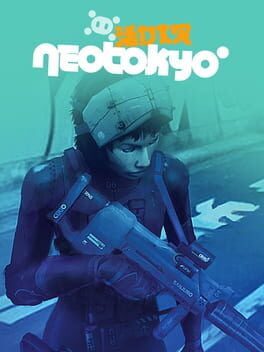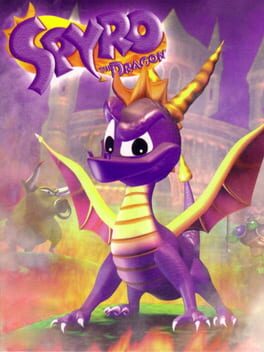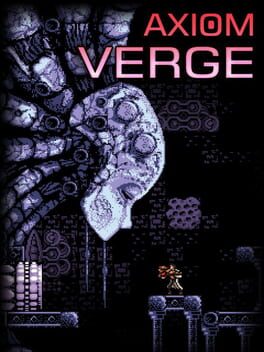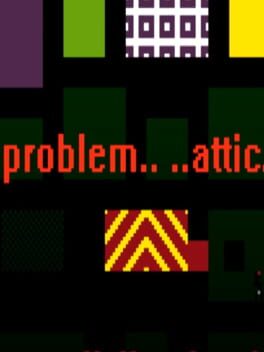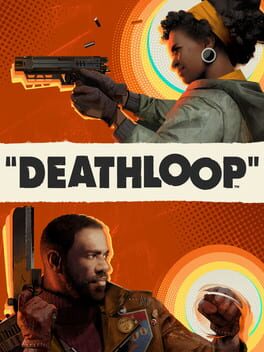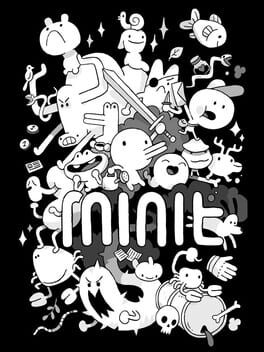Glorgu
21 reviews liked by Glorgu
A Little to the Left
2022
Everything, everything
Everything, everything
In its right place, in its right place
In its right place, in its right place
Yesterday I woke up sucking a lemon, yesterday I woke up sucking a lemon
Yesterday I woke up sucking a lemon, yesterday I woke up sucking a lemon
Everything, everything
Everything
In its right place, in its right place
Right place
There are two colours in my head, there are two colours in my head
What, what is that you tried to say? What, what was that you tried to say?
Tried to say, tried to say, tried to say, tried to say
Everything
Everything
Everything
Everything
Everything, everything
In its right place, in its right place
In its right place, in its right place
Yesterday I woke up sucking a lemon, yesterday I woke up sucking a lemon
Yesterday I woke up sucking a lemon, yesterday I woke up sucking a lemon
Everything, everything
Everything
In its right place, in its right place
Right place
There are two colours in my head, there are two colours in my head
What, what is that you tried to say? What, what was that you tried to say?
Tried to say, tried to say, tried to say, tried to say
Everything
Everything
Everything
Everything
Mortal Kombat 1
2023
I have a real love/hate relationship with Mortal Kombat. I enjoyed both MKX and MK11 enough to put 80 hours into each of them, and yet my memories of them often involve why I got frustrated with both of them instead of why I had fun with them.
I tried to go into MK1 with an open mind, but I think I've settled on the conclusion that this game isn't for me. And that's fine. And it doesn't mean the game is bad, either! It’s certainly a gorgeous game, with a far more varied color palette than X or 11 ever had. And I’m glad the fatalities lean more into over-the-top absurdity this time rather than realistic depictions of torture, as the former was always the main appeal of Fatalities for me anyway. But I just can’t click with MK1’s combat system in the way others have.
If you've been following Fighting Game Community circles lately, you'll find that the topic du jour lately has been "player expression," or the idea that players should have freedom to play how they want instead of being limited to a single linear gameplan. But it feels like the common opinion these days is that longer combos means more opportunities for player expression, and….I don't exactly agree.
The argument in favor of MK1 is that longer combos compared to MK11 means more opportunities for improvisation, and yet if you play any ranked MK1, you'll find many players using the same assists (get ready to see Cyrax and Sareena a lot!!!!) with the same optimal combos. I think way too many people immediately blamed short combos for MK11's frustrating competitive play when I think the far bigger problems were the stale meta due to short-sighted balance changes and the inevitable mess that came from NRS changing their minds on allowing Custom Variations midway through the game's life cycle.
This doesn't mean I hate MK1's combo system, though. I admit that trying out combo strings in training and figuring out the best way to tie them together provides the same satisfaction one gets when building Legos into a cool starship. It's fun to see how a series of smaller combos along with kameo assists can come together into 40% damage. But being expected to do these kinds of combos in every match feels exhausting to me - I’d much rather focus on spacing and mindgames, but these combos are so important to the game that they take precedence. And while the mechanics are clearly borrowing a lot from “tag fighters” like Marvel vs Capcom, the slower pace of the matches means the chaotic, kinetic energy that makes a game like MvC3 so exciting isn’t really here.
Even people who dislike MK as a fighting game can admit that the games have always had a solid feature set, and while MK1 is no different, I feel like it’s less of a selling point now that its competition is finally catching up on the single player side. Outside of the story, there’s the usual ladders and the new Invasions mode, which is basically World of Light from Smash Bros. I’m sure some people will love the grindy nature of Invasions but I personally find it feels like busywork. But that’s a minor quibble, as anyone who has played a recent MK knows the main single player mode is the story.
The story mode has been the crown jewel of MK for a while, and 1's is no different. I genuinely enjoyed seeing the new spin on classic MK characters and lore; I'm glad Baraka and Reptile actually have solid backstories now instead of just being Shao Khan's lackeys (Reiko didn't get so lucky, unfortunately; sorry, Reiko fans!), and there's some really fun character moments like Johnny and Kenshi's hilarious bromance. My only real complaint is that the last few chapters feel like they came from another game; the story just kind of stops in service of an (admittedly entertaining) over the top fanservice climax. I hope the next story, whether it's dlc or in the next installment, is a little more cohesive and focuses more on having a satisfying beginning, middle and end instead of just a series of cool moments.
At the end of the day, I really can't say MK1 is bad. It's solidly made, looks great, and has plenty of winks and nods for longtime fans. It's just not what I want out of Mortal Kombat, and that's okay.
I tried to go into MK1 with an open mind, but I think I've settled on the conclusion that this game isn't for me. And that's fine. And it doesn't mean the game is bad, either! It’s certainly a gorgeous game, with a far more varied color palette than X or 11 ever had. And I’m glad the fatalities lean more into over-the-top absurdity this time rather than realistic depictions of torture, as the former was always the main appeal of Fatalities for me anyway. But I just can’t click with MK1’s combat system in the way others have.
If you've been following Fighting Game Community circles lately, you'll find that the topic du jour lately has been "player expression," or the idea that players should have freedom to play how they want instead of being limited to a single linear gameplan. But it feels like the common opinion these days is that longer combos means more opportunities for player expression, and….I don't exactly agree.
The argument in favor of MK1 is that longer combos compared to MK11 means more opportunities for improvisation, and yet if you play any ranked MK1, you'll find many players using the same assists (get ready to see Cyrax and Sareena a lot!!!!) with the same optimal combos. I think way too many people immediately blamed short combos for MK11's frustrating competitive play when I think the far bigger problems were the stale meta due to short-sighted balance changes and the inevitable mess that came from NRS changing their minds on allowing Custom Variations midway through the game's life cycle.
This doesn't mean I hate MK1's combo system, though. I admit that trying out combo strings in training and figuring out the best way to tie them together provides the same satisfaction one gets when building Legos into a cool starship. It's fun to see how a series of smaller combos along with kameo assists can come together into 40% damage. But being expected to do these kinds of combos in every match feels exhausting to me - I’d much rather focus on spacing and mindgames, but these combos are so important to the game that they take precedence. And while the mechanics are clearly borrowing a lot from “tag fighters” like Marvel vs Capcom, the slower pace of the matches means the chaotic, kinetic energy that makes a game like MvC3 so exciting isn’t really here.
Even people who dislike MK as a fighting game can admit that the games have always had a solid feature set, and while MK1 is no different, I feel like it’s less of a selling point now that its competition is finally catching up on the single player side. Outside of the story, there’s the usual ladders and the new Invasions mode, which is basically World of Light from Smash Bros. I’m sure some people will love the grindy nature of Invasions but I personally find it feels like busywork. But that’s a minor quibble, as anyone who has played a recent MK knows the main single player mode is the story.
The story mode has been the crown jewel of MK for a while, and 1's is no different. I genuinely enjoyed seeing the new spin on classic MK characters and lore; I'm glad Baraka and Reptile actually have solid backstories now instead of just being Shao Khan's lackeys (Reiko didn't get so lucky, unfortunately; sorry, Reiko fans!), and there's some really fun character moments like Johnny and Kenshi's hilarious bromance. My only real complaint is that the last few chapters feel like they came from another game; the story just kind of stops in service of an (admittedly entertaining) over the top fanservice climax. I hope the next story, whether it's dlc or in the next installment, is a little more cohesive and focuses more on having a satisfying beginning, middle and end instead of just a series of cool moments.
At the end of the day, I really can't say MK1 is bad. It's solidly made, looks great, and has plenty of winks and nods for longtime fans. It's just not what I want out of Mortal Kombat, and that's okay.
u want to go on a date with me? okay, first meet me at the CARNIVAL at the TROGGLE SHOOT so i can TRAP U on my MAGICAL PUZZLE ISLAND and i've turned u into a LIVING KEWPIE where the only way to escape is to solve all my MYSTERIOUS RIDDLES so u can concoct a MYSTICAL PURPLE POTION in a COMICALLY LARGE CAULDRON that will RESTORE UR FORM by BARFING URSELF UP back into the CARNIVAL and then ur ELIGIBLE
Rain World: Downpour
2023
Some of the most fun I’ve had with a game in years was learning how to kill lizards in Rain World. In my entire time with the game in my first playthroughs, I’m not sure I ever intentionally killed one of these beasts. I saw them as impossible foes. But in order to reach many of my goals in Downpour, I had to learn how to conquer them. The first kill feels like a fluke, like luck, and in a way it is. But each spear that pierces their hide feels more real, more earned. They never stop being terrifying. They never stop being a threat. But I had to learn how to take them down anyway, backflipping, juking, stabbing, feasting. I had to learn how to slay dragons.
I have a brand, and part of that brand is that I really like Rain World. In all my poetic waxings, I often am remiss to mention what makes playing Rain World itself actually so cool. So for once, I’ll try to offer an admittedly vague explanation. I’m sure you can find no shortage of mechanical rundowns, so I’ll keep this brief: Rain World is a unique game where you play as a little slugcat trying to survive and find shelter before the devastating rain comes. It’s quite a difficult game where challenges may often feel insurmountable. What makes Rain World such a unique game is its emphasis on emergent and procedural systems. The vast majority of these systems are not explained to the player at all, and as such have to be learned by experimentation and exploration. The behavior and animations of all the predators and creatures you encounter is unpredictable and dynamic. The game is a bountfiul garden of consistently surprising gameplay.
The result, for me, is something unlike anything else: a constantly exciting game. It’s always a thrill playing Rain World. Even dozens of hours in, I find myself yelping and gritting my teeth. I can get into specifics but I don’t want to dispel the magic of experiencing it yourself. I adore this. It can also end up making making the game agonizing. This is why initial critical response was negative, and why many players will find the game simply too hard or too cruel to even play let alone enjoy. But that agony is a part of the experience, or at least my experience, and it’s part of what makes the slugcat’s journey so beautiful.
So what about Downpour? This is an expansion that adds a litany of new features. If you just want a straight recommendation, I don’t advise going into anything related to the expansion before playing the base game. It’s not a required expansion and frankly is extremely geared towards die-hard fans. Most of my time was spent with the new slugcats, but they also added co-op, Expedition mode, challenges, and other stuff. A major addition to the game was Remix, a suite of new options that is available to owners of the base game. This alone makes recommending Rain World significantly easier, because it now comes with a big list of checkboxes that can help you tailor the game to your own needs. (If you want help figuring out what to use, check out my forum post here.)
Now, there is a criticism that Downpour in many ways actually distorts and weakens the unique core identity of Rain World. I’m torn on this. On one hand, I think it’s a bit paranoid. Even with an expansion (which is still optional!), Rain World remains a singular game like no other. Hunter and Monk were already additions and didn’t distort that vision. On the other hand, this game has a lot of things in it. There’s five new campaigns, a bunch of new game modes, and major additions to the map. There’s a chunk of community easter eggs, which frankly rubs me the wrong way, and the involvement of fandom in art can get ugly fast. The expansion also ends up adding a fair bit to the lore and narrative, and I don’t have simple feelings about some of the choices. (I won’t get into it for spoiler reasons, but there are some big swings that I don’t love.) It’s so much that I couldn’t possibly cover it all, and all the implications and complications in this review; even what I’ve written here is longer than I wanted. I wanted to just talk about the lizards, but this is too dense with content that I can’t just leave it at that. I would never go as far to say that Downpour ruins or fundamentally changes Rain World, but it does definitely add a lot to the mix.
There’s a reason for all this. Let’s talk a bit about the history here: years ago, some Rain World modders began developing the More Slugcats mod, which would add new playable slugcats to the game. Eventually, Videocult took these folks onto the team directly and made the expansion official. This, perhaps, explains why there is a sort of eagerness and lack of restraint to the expansion. The developers have announced intent to continue working on Rain Word, though I get the sense that this will mostly be the Downpour team and not the Videocult duo. I won’t lie that this concerns me; I don’t necessarily want to see this game endlessly expanded. I’m still waiting on the Signal project, and I want to see what else these teams are capable of putting together.
I think part of this comes from the fact that I don’t really engage with games in the way a lot of others seem to. For some people, Rain World is there forever game. I don’t want a forever game. I don’t generally seek to play a game for an indeterminately long amount of time. When I see credits on a roguelite, that’s generally when I stop playing. I am so puzzled when I see people gripe about growing tired of something after several hundred hours in a game. Even my favorite games of all time I generally do not return to ad nauseaum.
But that’s sort of why Downpour ends up making me happy. In spite of some of my concerns and gripes. A messier Rain World is still Rain World, and Rain World is good. And at the end of the day, Downpour gave me a reason to play one of my favorite games again. It gave me a reason to learn how to slay dragons. And that’s worth a hell of a lot.
I have a brand, and part of that brand is that I really like Rain World. In all my poetic waxings, I often am remiss to mention what makes playing Rain World itself actually so cool. So for once, I’ll try to offer an admittedly vague explanation. I’m sure you can find no shortage of mechanical rundowns, so I’ll keep this brief: Rain World is a unique game where you play as a little slugcat trying to survive and find shelter before the devastating rain comes. It’s quite a difficult game where challenges may often feel insurmountable. What makes Rain World such a unique game is its emphasis on emergent and procedural systems. The vast majority of these systems are not explained to the player at all, and as such have to be learned by experimentation and exploration. The behavior and animations of all the predators and creatures you encounter is unpredictable and dynamic. The game is a bountfiul garden of consistently surprising gameplay.
The result, for me, is something unlike anything else: a constantly exciting game. It’s always a thrill playing Rain World. Even dozens of hours in, I find myself yelping and gritting my teeth. I can get into specifics but I don’t want to dispel the magic of experiencing it yourself. I adore this. It can also end up making making the game agonizing. This is why initial critical response was negative, and why many players will find the game simply too hard or too cruel to even play let alone enjoy. But that agony is a part of the experience, or at least my experience, and it’s part of what makes the slugcat’s journey so beautiful.
So what about Downpour? This is an expansion that adds a litany of new features. If you just want a straight recommendation, I don’t advise going into anything related to the expansion before playing the base game. It’s not a required expansion and frankly is extremely geared towards die-hard fans. Most of my time was spent with the new slugcats, but they also added co-op, Expedition mode, challenges, and other stuff. A major addition to the game was Remix, a suite of new options that is available to owners of the base game. This alone makes recommending Rain World significantly easier, because it now comes with a big list of checkboxes that can help you tailor the game to your own needs. (If you want help figuring out what to use, check out my forum post here.)
Now, there is a criticism that Downpour in many ways actually distorts and weakens the unique core identity of Rain World. I’m torn on this. On one hand, I think it’s a bit paranoid. Even with an expansion (which is still optional!), Rain World remains a singular game like no other. Hunter and Monk were already additions and didn’t distort that vision. On the other hand, this game has a lot of things in it. There’s five new campaigns, a bunch of new game modes, and major additions to the map. There’s a chunk of community easter eggs, which frankly rubs me the wrong way, and the involvement of fandom in art can get ugly fast. The expansion also ends up adding a fair bit to the lore and narrative, and I don’t have simple feelings about some of the choices. (I won’t get into it for spoiler reasons, but there are some big swings that I don’t love.) It’s so much that I couldn’t possibly cover it all, and all the implications and complications in this review; even what I’ve written here is longer than I wanted. I wanted to just talk about the lizards, but this is too dense with content that I can’t just leave it at that. I would never go as far to say that Downpour ruins or fundamentally changes Rain World, but it does definitely add a lot to the mix.
There’s a reason for all this. Let’s talk a bit about the history here: years ago, some Rain World modders began developing the More Slugcats mod, which would add new playable slugcats to the game. Eventually, Videocult took these folks onto the team directly and made the expansion official. This, perhaps, explains why there is a sort of eagerness and lack of restraint to the expansion. The developers have announced intent to continue working on Rain Word, though I get the sense that this will mostly be the Downpour team and not the Videocult duo. I won’t lie that this concerns me; I don’t necessarily want to see this game endlessly expanded. I’m still waiting on the Signal project, and I want to see what else these teams are capable of putting together.
I think part of this comes from the fact that I don’t really engage with games in the way a lot of others seem to. For some people, Rain World is there forever game. I don’t want a forever game. I don’t generally seek to play a game for an indeterminately long amount of time. When I see credits on a roguelite, that’s generally when I stop playing. I am so puzzled when I see people gripe about growing tired of something after several hundred hours in a game. Even my favorite games of all time I generally do not return to ad nauseaum.
But that’s sort of why Downpour ends up making me happy. In spite of some of my concerns and gripes. A messier Rain World is still Rain World, and Rain World is good. And at the end of the day, Downpour gave me a reason to play one of my favorite games again. It gave me a reason to learn how to slay dragons. And that’s worth a hell of a lot.
Below
2018
"Worries go down better with soup than without it." This is a Yiddish proverb. I am told, at least; my relationship with Jewish culture is a little messy. But I think of this saying often. Soup holds a kind of venerated position in Ashkenazi cuisine. Kreplach, matzo balls, mushroom barley, all that. It’s a staple. My dad, who provides my Jewish half, ironically, doesn’t enjoy soup much. He finds it boring. But the simplicity of a good soup is often it’s appeal. When we say “soup”, what do you think of? There are cold gazpachos and hot and sours, of course, but I think most of the time we think of hot, salty broth. The soup is clear but heavy, simple but filling. Soup is a potent food when it comes to meaning; it immediately conjures care, home, nourishment, warmth. Soup is hot, soothing, healing. Bad times with soup are better than bad times without soup.
In Below, knowing how to make a good soup is essential. After all, it is a game filled with worries. Soup will save your life. Each time you make it to a campfire, you get the chance make more soup, something that will carry you further into the depths. I won’t go as far as to say that the campfire feels like home. It, like your own little character’s life, is fleeting, and trapped in a dungeon. You constantly grow hungrier, thirstier, colder; you are creature of temperature and appetite, and you must abide by your bodily needs. That decay is a constant that defines Below. While you may know where the next campfire lies, you never know what lies between you and it. You have to be weary of each step and prepared for each sword swing. But for a moment, when you’re next to the fire, you can stop, breathe and nourish yourself. The campfire is an opportunity to replenish your supplies. To take a breather. To warm your bones. To make more soup.
There is a tragedy to Below's legacy. Generally, folks have seemed to be either underwhelmed and annoyed with it. It had been in development for over 5 years, announced during the bright and hot summer at E3 2013, and it was released in the cold winter nights of 2018. As it lead up to release, I got the creeping sensation that it was going to flop. And I think I was right. In an interview with Newsweek, Kris Piotrowski (Creative Director at Capybara Games) said “It's very important for there to be some people who make something very specific. And maybe you're not going to like this. But somebody else will fucking love it.” I think it is pretty clear that it will be divisive from it’s first moments: the first thing you see in the game is a long, slow zoom on a single little ship in the ocean, for several minutes. For me, I adored every moment of this crawl, but I think others will immediately shut the game off.
I’ll call it an unsung masterpiece for a specific reason: there are underrated masterpieces out there that I love a lot, but Below doesn’t even really have a ride-or-die fanbase. It released to tepid praise and hasn’t had a second wind. Part of the issue is that Below lacks a lot of character. That’s not to say it is not impressive. It is visually stunning to look at: the tilt shifted camera, the muted tones, the geometric geography and architecture. And the sound design is some of the best I’ve encountered in I think maybe any game. No, the issue isn’t a lack of presentation, but a lack of flair. There are so few discernable qualities. There aren’t any memorable characters, no flashy boss battles, no unique settings. Even mechanically, there is little that stands out about Below. I can give you the high level pitch, of course: it’s a procedural death labyrinth with survival elements. But will that pitch actually sell anyone on the game? I doubt it.
Which is a shame, because despite that lack of character, Below is expertly crafted and pretty beautiful.
If I had to use one word to describe Below, it would be “dread”. Every single surface of this game is covered in dread. Each sound, each inch of dirt is both beautiful and eerie in the same breath. Below’s environment is incredibly dark, often necessitating the use of a torch or the lantern. The game is set to a distance from your player character that dwarfs them; there’s this tilt-shift effect that makes everything seem minuscule. I found myself hunching over (more than usual) to squint at the darkness surrounding me. Shadows cast against the floor, the glowing eyes of beasts, prey in your periphery. The soundtrack by Jim Guthrie often sounds less like music and more like the groans of the earth itself. And if it’s not an ominous hum, it’s a somber, thoughtful ambiance, the wind brushing through the grass and the waves crashing on the shore. Sounds echo through the caves, scrapes of stones and trickles of water, the chitters and growls of something hunting you. You crawl into dark, terrible and ancient sepulchers, lined with death and sorrow. The distant scrapes and dark corridors become a canvas on which to paint your deepest fears.
Every time you die, you hear this sound. It’s a strange, sinister bellow, a deathly horn. And when you respawn, a new wanderer drifting onto that same rainy shore? That same haunting bellow sounds. As if to say, “This will happen again.”
Below is a difficult game. At times to a fault; there are a few death traps in there that are genuinely cruel. You’ll die a lot, and it’s a big part of the experience. You play not as a single adventurer, but dozens of them. Each death is final, and you play as a successor to the poor doomed soul who met their end in the caverns below. Below is an incredibly slow kind of difficulty. Combat is a deliberate, punishing affair. Sprinting through a room will often lead to a swift death. Your inventory space, too, is incredibly limited. You have sixteen slots for food and sixteen for materials. Personally, I am an inventory hoarder. I will maximize the use of every pound I can carry. But Below, in its limitations, has liberated me from this curse by forcing me to get rid of anything I truly don’t need. Any slot with an unneeded stick or stone is taking up space that could be taken by arrows or bandages. Be careful what you pack. Often you may die because you didn’t have enough materials on hand. Many deaths are deaths by attrition. Many players, I imagine, are going to feel these deaths are overly punishing. I certainly did, at times. But I also recognized that it was core to what the game was doing. It is an easy mistake, I think, to assume Below would be better if it wasn’t a Roguelite. There are lots of games like that nowadays, where the proc-gen structure seems more to be a mechanic on a dart board rather than a deliberate choice. But Below, really, can only be a Roguelite. Because structurally, it isn’t about beating the game. Having to delve even deeper with each death just to make progress can be intimidating. You’ll often lose a lot of materials, too. You can find your body with its wares still on it, now only a dry skeleton. How long has it been? Months? Years? I couldn’t say. But only take what you need.
At its most tense, Below’s dungeon crawling is either a desperate sprint or desperate struggle. On certain floors, you’ll sprint like your life depends on it, because it quite literally does. At the same time, you’ll have to be careful to dodge attacks or not to trigger any traps. So these marathons begin to ebb and flow from trepidation to a frantic sprint. At other times, Below puts you up against the wall. You feel surrounded, outmatched, overwhelmed. I wanted to flail in retaliation like a wild animal had leaped up against me, please, God, anything to get this thing away from me. But you have to be patient. Put up your shield. Wait to parry. Dodge their attacks. At these times, you need to be careful and patient, but also keep moving. Your hunger and thirst aren’t going to slow down. No matter which of these modes you end up playing in at a given time, Below’s most suspenseful moments are at the middle of a tug of war between a need to rush and a need to be as careful as possible. There is a specific area in the game (Floor 14 onwards, for those who know the game) that is genuinely one of the most dreadful levels in any game I’ve ever played; every single time I step foot in that place, my heart starts pounding, a frantic and desperate crawl through the darkness, pulled between the tension of needing to go slowly but needing to go faster. It’s dreadful. But I persevere. I make it through. Eventually.
Success in Below is not overcoming a mountain. It is about going deep down. There is no dragon in Below. No corrupt king, no great sea serpent, no devils or demons. There is nothing here for you to conquer. There are maybe one or two things I would call “boss battles”, but the biggest obstacles in Below are impossible to even scathe. Below is not a game about accomplishment. It’s a game about mastery. The game teaches you almost nothing about how to play; most mechanics have to be discovered by the players. And if you make it far enough, you begin to realize the goal is not descent, but the collection of these items called shards you discover with your lantern. And suddenly, it clicks into place. Succeeding in Below does not come from a single fell swoop, but a series of knicks. It comes from a series of successive runs. You stand on the shoulders of a thousand dead wanderers who you will join soon enough. By the later hours of Below, your player character(s) will not become any stronger. But you have learned so much. You know where to find the materials to make bombs, or how to make bandages, or how to get to the deepest pits of the island in only a few minutes. You begin to realize that you actually don’t lose much with each death. Sure, you might lose a hefty sum of crystals, or a stockpile of arrows and bandages, or a piece of gear you were saving, but there are ample ways to farm materials, and you can always find that gear again. Your goal is not to descend deeper, but to collect these shards with your lantern. And acquiring those shards is far less about slaughtering and spelunking, and more about knowing and understanding the cave systems of this island. You gain mastery, gain an understanding, of the world of Below. You find comfort in the little rituals you develop, of going and gathering picking supplies and hunting for materials, of making soup. It is a game about, despite all the insurmountable dread, finding a way forward anyway.
Again, there’s little I can say that will sell you on Below. There’s no big twist or hook to pull you in. It is just a nearly-perfectly designed game. Like a good soup, Below doesn’t look like much on the outside. But it’s a product of profound craftsmanship. It’s a stew of mechanics which compliment eachother precisely, a perfectly balanced mixture. And maybe once you’ve taken a spoonful, you’ll find that you think it’s a little boring. But give it time, pay close attention to it, understand it’s balance, and you might find that it grows on you, and you can recognize it as a rich and masterfully made experience.
In Below, knowing how to make a good soup is essential. After all, it is a game filled with worries. Soup will save your life. Each time you make it to a campfire, you get the chance make more soup, something that will carry you further into the depths. I won’t go as far as to say that the campfire feels like home. It, like your own little character’s life, is fleeting, and trapped in a dungeon. You constantly grow hungrier, thirstier, colder; you are creature of temperature and appetite, and you must abide by your bodily needs. That decay is a constant that defines Below. While you may know where the next campfire lies, you never know what lies between you and it. You have to be weary of each step and prepared for each sword swing. But for a moment, when you’re next to the fire, you can stop, breathe and nourish yourself. The campfire is an opportunity to replenish your supplies. To take a breather. To warm your bones. To make more soup.
There is a tragedy to Below's legacy. Generally, folks have seemed to be either underwhelmed and annoyed with it. It had been in development for over 5 years, announced during the bright and hot summer at E3 2013, and it was released in the cold winter nights of 2018. As it lead up to release, I got the creeping sensation that it was going to flop. And I think I was right. In an interview with Newsweek, Kris Piotrowski (Creative Director at Capybara Games) said “It's very important for there to be some people who make something very specific. And maybe you're not going to like this. But somebody else will fucking love it.” I think it is pretty clear that it will be divisive from it’s first moments: the first thing you see in the game is a long, slow zoom on a single little ship in the ocean, for several minutes. For me, I adored every moment of this crawl, but I think others will immediately shut the game off.
I’ll call it an unsung masterpiece for a specific reason: there are underrated masterpieces out there that I love a lot, but Below doesn’t even really have a ride-or-die fanbase. It released to tepid praise and hasn’t had a second wind. Part of the issue is that Below lacks a lot of character. That’s not to say it is not impressive. It is visually stunning to look at: the tilt shifted camera, the muted tones, the geometric geography and architecture. And the sound design is some of the best I’ve encountered in I think maybe any game. No, the issue isn’t a lack of presentation, but a lack of flair. There are so few discernable qualities. There aren’t any memorable characters, no flashy boss battles, no unique settings. Even mechanically, there is little that stands out about Below. I can give you the high level pitch, of course: it’s a procedural death labyrinth with survival elements. But will that pitch actually sell anyone on the game? I doubt it.
Which is a shame, because despite that lack of character, Below is expertly crafted and pretty beautiful.
If I had to use one word to describe Below, it would be “dread”. Every single surface of this game is covered in dread. Each sound, each inch of dirt is both beautiful and eerie in the same breath. Below’s environment is incredibly dark, often necessitating the use of a torch or the lantern. The game is set to a distance from your player character that dwarfs them; there’s this tilt-shift effect that makes everything seem minuscule. I found myself hunching over (more than usual) to squint at the darkness surrounding me. Shadows cast against the floor, the glowing eyes of beasts, prey in your periphery. The soundtrack by Jim Guthrie often sounds less like music and more like the groans of the earth itself. And if it’s not an ominous hum, it’s a somber, thoughtful ambiance, the wind brushing through the grass and the waves crashing on the shore. Sounds echo through the caves, scrapes of stones and trickles of water, the chitters and growls of something hunting you. You crawl into dark, terrible and ancient sepulchers, lined with death and sorrow. The distant scrapes and dark corridors become a canvas on which to paint your deepest fears.
Every time you die, you hear this sound. It’s a strange, sinister bellow, a deathly horn. And when you respawn, a new wanderer drifting onto that same rainy shore? That same haunting bellow sounds. As if to say, “This will happen again.”
Below is a difficult game. At times to a fault; there are a few death traps in there that are genuinely cruel. You’ll die a lot, and it’s a big part of the experience. You play not as a single adventurer, but dozens of them. Each death is final, and you play as a successor to the poor doomed soul who met their end in the caverns below. Below is an incredibly slow kind of difficulty. Combat is a deliberate, punishing affair. Sprinting through a room will often lead to a swift death. Your inventory space, too, is incredibly limited. You have sixteen slots for food and sixteen for materials. Personally, I am an inventory hoarder. I will maximize the use of every pound I can carry. But Below, in its limitations, has liberated me from this curse by forcing me to get rid of anything I truly don’t need. Any slot with an unneeded stick or stone is taking up space that could be taken by arrows or bandages. Be careful what you pack. Often you may die because you didn’t have enough materials on hand. Many deaths are deaths by attrition. Many players, I imagine, are going to feel these deaths are overly punishing. I certainly did, at times. But I also recognized that it was core to what the game was doing. It is an easy mistake, I think, to assume Below would be better if it wasn’t a Roguelite. There are lots of games like that nowadays, where the proc-gen structure seems more to be a mechanic on a dart board rather than a deliberate choice. But Below, really, can only be a Roguelite. Because structurally, it isn’t about beating the game. Having to delve even deeper with each death just to make progress can be intimidating. You’ll often lose a lot of materials, too. You can find your body with its wares still on it, now only a dry skeleton. How long has it been? Months? Years? I couldn’t say. But only take what you need.
At its most tense, Below’s dungeon crawling is either a desperate sprint or desperate struggle. On certain floors, you’ll sprint like your life depends on it, because it quite literally does. At the same time, you’ll have to be careful to dodge attacks or not to trigger any traps. So these marathons begin to ebb and flow from trepidation to a frantic sprint. At other times, Below puts you up against the wall. You feel surrounded, outmatched, overwhelmed. I wanted to flail in retaliation like a wild animal had leaped up against me, please, God, anything to get this thing away from me. But you have to be patient. Put up your shield. Wait to parry. Dodge their attacks. At these times, you need to be careful and patient, but also keep moving. Your hunger and thirst aren’t going to slow down. No matter which of these modes you end up playing in at a given time, Below’s most suspenseful moments are at the middle of a tug of war between a need to rush and a need to be as careful as possible. There is a specific area in the game (Floor 14 onwards, for those who know the game) that is genuinely one of the most dreadful levels in any game I’ve ever played; every single time I step foot in that place, my heart starts pounding, a frantic and desperate crawl through the darkness, pulled between the tension of needing to go slowly but needing to go faster. It’s dreadful. But I persevere. I make it through. Eventually.
Success in Below is not overcoming a mountain. It is about going deep down. There is no dragon in Below. No corrupt king, no great sea serpent, no devils or demons. There is nothing here for you to conquer. There are maybe one or two things I would call “boss battles”, but the biggest obstacles in Below are impossible to even scathe. Below is not a game about accomplishment. It’s a game about mastery. The game teaches you almost nothing about how to play; most mechanics have to be discovered by the players. And if you make it far enough, you begin to realize the goal is not descent, but the collection of these items called shards you discover with your lantern. And suddenly, it clicks into place. Succeeding in Below does not come from a single fell swoop, but a series of knicks. It comes from a series of successive runs. You stand on the shoulders of a thousand dead wanderers who you will join soon enough. By the later hours of Below, your player character(s) will not become any stronger. But you have learned so much. You know where to find the materials to make bombs, or how to make bandages, or how to get to the deepest pits of the island in only a few minutes. You begin to realize that you actually don’t lose much with each death. Sure, you might lose a hefty sum of crystals, or a stockpile of arrows and bandages, or a piece of gear you were saving, but there are ample ways to farm materials, and you can always find that gear again. Your goal is not to descend deeper, but to collect these shards with your lantern. And acquiring those shards is far less about slaughtering and spelunking, and more about knowing and understanding the cave systems of this island. You gain mastery, gain an understanding, of the world of Below. You find comfort in the little rituals you develop, of going and gathering picking supplies and hunting for materials, of making soup. It is a game about, despite all the insurmountable dread, finding a way forward anyway.
Again, there’s little I can say that will sell you on Below. There’s no big twist or hook to pull you in. It is just a nearly-perfectly designed game. Like a good soup, Below doesn’t look like much on the outside. But it’s a product of profound craftsmanship. It’s a stew of mechanics which compliment eachother precisely, a perfectly balanced mixture. And maybe once you’ve taken a spoonful, you’ll find that you think it’s a little boring. But give it time, pay close attention to it, understand it’s balance, and you might find that it grows on you, and you can recognize it as a rich and masterfully made experience.
Norco
2022
The comparisons are too easy to make. A narrative driven independent game with lush prose that dabbles in magical realism and science fiction as it confronts visions of both the future and past. It also happens to be set in a version of our world (in this case, the American South) that has been skewed, deals with themes of labor politics and the plight of the working class, and draws on and reinvents design philosophies from decades year old games. The comparisons make themselves. That’s why I am doing my damnedest not to say those games’ names, because to do so robs Norco of its own, distinct identity. It’s torture not to draw line after line between its constituent elements to its counterparts for the sake of preserving that identity, maybe especially because I think Norco is experiencing an identity crisis of its own.
Let me be unequivocal: Norco is a good game. I think it’s worth playing. There’s a part of me that feels bad for offering an emphasis on criticism, as if I’m kicking down a darling indie game. So I’m trying to be particularly explicit here: I think Norco is a good game. It’s filled with beautiful writing, unique characters, and potent themes of grief and politics. It has things to say. But I’m not sure Norco is quite sure what those things exactly are.
I have biases, and two in particular that I arrive at here: I care disproportionately about endings, and I care greatly about “aboutness”. Norco’s ending fell flat for me, and I struggle to know for sure what it’s truly about. These are my biases. As I’ve just said, there are so many reasons to love this game. That’s not what I’m going to write about here. I’m going to write about what keeps me from truly loving Norco.
I think I disproportionately weight endings in narratives because they are what stories leave you with. When you walk out of the theater, the thing that is mostly immediately carried with you is the last frames before the credits rolled. Games, historically, do not have great endings. I don’t mean mechanically; there are lots of games with great final bosses and all that. But the narrative ending, the last moments, these are usually unnoteworthy, and it’s usually brushed off. With narrative driven work, however, this is a little harder to forgive. Of course, everyone likes different kinds of endings. I am picky with my endings, I’ll admit, but I try to have a nuanced understanding of what does and doesn’t work with me in an ending. Enter Norco.
Norco’s ending, by which I mean the exact final moments before the credits roll, feel rushed and incomplete. It is in desperate need of a denouement. It’s ironic, because the climax of this game is flanked, quite literally, with two beautiful moments on the left on the right, one of which is perhaps the game’s most beautiful sequence. I will not spoil it, but it is an ethereal, melancholy, and haunting image of memories and home. I almost wish moment was positioned as the Norco’s last moments, because this potency is immediately undercut by the climax, which felt bereft of catharsis. And I think the reason this climax fell so flat for me is because it relied on the motives of the main character, whose identity and desires are opaque and indistinct.
Kay, the protagonist, never feels like she is given the opportunity to become a character of her own. Blake, her brother, almost feels like one, but is mostly off screen. The companions you encounter feel like characters. They have motives, interiority, likes and dislikes, quirks. Catherine, Kay’s deceased mother, who you play as in flashbacks, gets to be a character, too. This is welcome; rather than just being a grief object for the protagonist, Catherine gets to be a person. So rarely are stories about grief as much centered on who we lose as how we lose them. But what about Kay? What are Kay’s feelings? What does Kay want, need? What does she like or dislike? I’m not sure I could tell you anything about her, despite having spent hours in her shoes. I felt more empathetic and understanding of its side characters by the end. All I know about Kay for sure is that she is detached.
A detached character is obviously not a bad thing, and detachment serves an important role here. Kay’s detachment, as I read it, is representative of a response to what feels to many young people like the slow march into a catastrophe by modern industrial society. It is very intentional, and the rare moments where Kay’s detachment is overtly characterized, it is felt strongly. But when a game builds up to a climax which centers on the characters goals, motives, and desires, her own specific relations and history, all of which are deliberately muted and blurred… I struggle to be moved by that climax and its ever brief ending.
Kay is neither a cipher nor a character you roleplay as. I don’t know what she’s supposed to be. She’s not me, but who is she? I can neither imagine myself as her or imagine her as someone else. Like the game itself, the player is in a crisis of identity.
Norco is kind of a mess, both narratively and mechanically. It’s modeled after classic adventure games, but the puzzle design is a far cry from that old school style -- which is not something I’m exactly mourning. Those puzzles were notoriously arcane and absurd, an ethos that has aged in quite a way, and it wouldn’t have worked here. Norco’s puzzles are relatively straight forward and signposted heavily, and you can ask for advice. But Norco also has a combat system. And it has mini-games. A lot of them. Most of these mini-game puzzles are fine. Nothing exceptional, but nothing horrible. There is one bit I did think was excellent and well executed, which I won’t get into again for spoilers, but involves a boat. But I truly have no idea why this game has combat. It’s not fun and just feels silly. And this lack of cohesion is also seen in its thematic underpinnings.
The themes are easy enough to identify: the struggles of the working class, religion’s social role, messianic myth, the desire to find meaning under late capitalism, ironic middle class hipsterism, the ever-extravagant machinations of the bourgeoisie, and so on. But these themes are neither explored on their own fronts nor are they unified by any central theme. The “Mind Map”, which is an interior display of the lore and relationships in Kay’s life (again, trying not to make the comparison here) is dense with connections but not with cohesion. There is some fascinating world-building and cool ideas in here. But where do they lead to?
Obviously I don’t think it’s necessary that a “message” be had in art, but when you neither pose questions nor offer answers, it can begin to feel more like these themes are props. Norco mostly acknowledges and maybe comments on its phenomena. Again, that’s not intrinsically bad, but I have my preferences, and the absence of direction doesn’t work for me here. All of it is cool, sure. But I don’t know what to make of it, and not in a way that fills me with giddy curiosity. I didn’t leave Norco with any questions, for either its world or for my own.
Again, I feel guilt, “damning with faint praise”, but I seem to be in the minority here, which is nice, I guess. It makes me feel a little more comfortable offering criticism. After all, I can find plenty of ecstatic analyses of Norco, but not as much where I’m coming from. I see why others have fallen in love with it. But I never got that far. Maybe I’ll grow more fond after reading criticism and other’s feelings. But this was my initial response, and that counts for something.
Norco, at its core, ends up as a collage, so scattered as to almost resemble a pastiche of itself. It’s soup full of scoopfuls of ideas that have been lightly emulsified. Collages can be good. And Norco is good. Its lack of thematic and structural direction does not nullify all the beauty therein, but it is why I don’t think I’ll ever get goosebumps when I think about it.
Let me be unequivocal: Norco is a good game. I think it’s worth playing. There’s a part of me that feels bad for offering an emphasis on criticism, as if I’m kicking down a darling indie game. So I’m trying to be particularly explicit here: I think Norco is a good game. It’s filled with beautiful writing, unique characters, and potent themes of grief and politics. It has things to say. But I’m not sure Norco is quite sure what those things exactly are.
I have biases, and two in particular that I arrive at here: I care disproportionately about endings, and I care greatly about “aboutness”. Norco’s ending fell flat for me, and I struggle to know for sure what it’s truly about. These are my biases. As I’ve just said, there are so many reasons to love this game. That’s not what I’m going to write about here. I’m going to write about what keeps me from truly loving Norco.
I think I disproportionately weight endings in narratives because they are what stories leave you with. When you walk out of the theater, the thing that is mostly immediately carried with you is the last frames before the credits rolled. Games, historically, do not have great endings. I don’t mean mechanically; there are lots of games with great final bosses and all that. But the narrative ending, the last moments, these are usually unnoteworthy, and it’s usually brushed off. With narrative driven work, however, this is a little harder to forgive. Of course, everyone likes different kinds of endings. I am picky with my endings, I’ll admit, but I try to have a nuanced understanding of what does and doesn’t work with me in an ending. Enter Norco.
Norco’s ending, by which I mean the exact final moments before the credits roll, feel rushed and incomplete. It is in desperate need of a denouement. It’s ironic, because the climax of this game is flanked, quite literally, with two beautiful moments on the left on the right, one of which is perhaps the game’s most beautiful sequence. I will not spoil it, but it is an ethereal, melancholy, and haunting image of memories and home. I almost wish moment was positioned as the Norco’s last moments, because this potency is immediately undercut by the climax, which felt bereft of catharsis. And I think the reason this climax fell so flat for me is because it relied on the motives of the main character, whose identity and desires are opaque and indistinct.
Kay, the protagonist, never feels like she is given the opportunity to become a character of her own. Blake, her brother, almost feels like one, but is mostly off screen. The companions you encounter feel like characters. They have motives, interiority, likes and dislikes, quirks. Catherine, Kay’s deceased mother, who you play as in flashbacks, gets to be a character, too. This is welcome; rather than just being a grief object for the protagonist, Catherine gets to be a person. So rarely are stories about grief as much centered on who we lose as how we lose them. But what about Kay? What are Kay’s feelings? What does Kay want, need? What does she like or dislike? I’m not sure I could tell you anything about her, despite having spent hours in her shoes. I felt more empathetic and understanding of its side characters by the end. All I know about Kay for sure is that she is detached.
A detached character is obviously not a bad thing, and detachment serves an important role here. Kay’s detachment, as I read it, is representative of a response to what feels to many young people like the slow march into a catastrophe by modern industrial society. It is very intentional, and the rare moments where Kay’s detachment is overtly characterized, it is felt strongly. But when a game builds up to a climax which centers on the characters goals, motives, and desires, her own specific relations and history, all of which are deliberately muted and blurred… I struggle to be moved by that climax and its ever brief ending.
Kay is neither a cipher nor a character you roleplay as. I don’t know what she’s supposed to be. She’s not me, but who is she? I can neither imagine myself as her or imagine her as someone else. Like the game itself, the player is in a crisis of identity.
Norco is kind of a mess, both narratively and mechanically. It’s modeled after classic adventure games, but the puzzle design is a far cry from that old school style -- which is not something I’m exactly mourning. Those puzzles were notoriously arcane and absurd, an ethos that has aged in quite a way, and it wouldn’t have worked here. Norco’s puzzles are relatively straight forward and signposted heavily, and you can ask for advice. But Norco also has a combat system. And it has mini-games. A lot of them. Most of these mini-game puzzles are fine. Nothing exceptional, but nothing horrible. There is one bit I did think was excellent and well executed, which I won’t get into again for spoilers, but involves a boat. But I truly have no idea why this game has combat. It’s not fun and just feels silly. And this lack of cohesion is also seen in its thematic underpinnings.
The themes are easy enough to identify: the struggles of the working class, religion’s social role, messianic myth, the desire to find meaning under late capitalism, ironic middle class hipsterism, the ever-extravagant machinations of the bourgeoisie, and so on. But these themes are neither explored on their own fronts nor are they unified by any central theme. The “Mind Map”, which is an interior display of the lore and relationships in Kay’s life (again, trying not to make the comparison here) is dense with connections but not with cohesion. There is some fascinating world-building and cool ideas in here. But where do they lead to?
Obviously I don’t think it’s necessary that a “message” be had in art, but when you neither pose questions nor offer answers, it can begin to feel more like these themes are props. Norco mostly acknowledges and maybe comments on its phenomena. Again, that’s not intrinsically bad, but I have my preferences, and the absence of direction doesn’t work for me here. All of it is cool, sure. But I don’t know what to make of it, and not in a way that fills me with giddy curiosity. I didn’t leave Norco with any questions, for either its world or for my own.
Again, I feel guilt, “damning with faint praise”, but I seem to be in the minority here, which is nice, I guess. It makes me feel a little more comfortable offering criticism. After all, I can find plenty of ecstatic analyses of Norco, but not as much where I’m coming from. I see why others have fallen in love with it. But I never got that far. Maybe I’ll grow more fond after reading criticism and other’s feelings. But this was my initial response, and that counts for something.
Norco, at its core, ends up as a collage, so scattered as to almost resemble a pastiche of itself. It’s soup full of scoopfuls of ideas that have been lightly emulsified. Collages can be good. And Norco is good. Its lack of thematic and structural direction does not nullify all the beauty therein, but it is why I don’t think I’ll ever get goosebumps when I think about it.
fuck, croc, i was rooting for you. i really was. you deserved better.
the story goes that croc was originally pitched by argonaut games to nintendo as a yoshi game, as what would be the first ever 3D platformer: Yoshi Racing. miyamoto was apparently enthusiastic about the idea, but nintendo turned them down. argonaut had previously had a very close working relationship with nintendo. they helped make many of their first 3D games on the snes, including the original star fox. but things started to seem iffy when nintendo decided not to release star fox 2, which was already completed. when nintendo turned down argonaut on their yoshi project, argonaut forged forward with the idea and ended up making croc. and nintendo? well, whether or not they took the idea directly or not, they made super mario 64, a game with a similar premise and with a legacy that continues to endure, while croc has faded into obscurity and argonaut fizzled out in the 2000s. jez san, the founder of argonaut, said miyamoto himself apologized to him for how nintendo handled the situation, and that at least croc was doing well for them. but jez san felt that the bridge had already been burned a long time ago.
this firmly solidifies croc as an underdog, a scrappy and ambitious game who had its thunder stolen by one of the biggest gaming companies of all time. we all love an underdog story, i'm sure. but underdogs aren't always good at their job. and croc, frankly, isn't.
it's all so rote as to be asinine to describe: croc consists of running and jumping between FOUR COLORFUL WORLDS and collecting FLOATING ICOSAHEDRONS and saving these little fuzzy critters called "gobbos", which i can't take seriously at all, partially because its a silly name, but mostly because i once stumbled into some erotica about lesbians turning into goblins that was very intensely into body odor fetish and she referred to herself as a "gobbo" and that's all i can think about when i hear it now. the levels are trivially short if you don't go for the collectibles, which at least can make completing this game less painful. but i don't even like 3D platformers that much to begin with, and this game is maligned even among those fans.
i'm sure there a bunch of reviews on youtube or whatever that go into the particular design failures of croc. i don't really want to get into it too deep. but a note on tank controls: i think tank controls are fine. i like them. they do need to exist in a context, though. croc is a 3D platformer, which usually shouldn't have that, but i do genuinely think you could have a decent 3D platformer with tank controls. but this isn't it. controlling croc doesnt feel great, but it could be a lot worse, it's better than bubsy 3d. honestly the bigger issue is his tailwhip attack, where he yells "kersplat!!" or "kaboof!!" or "kapow!!" and pretty much never hits any enemy and dies because the hit detection in this game is terrible. for me the problem of game feel is exacerbated by everything else. it has this classic 3d platformer design, the same kind that underwhelmed me in spyro and crash, and in fact the extension of design in the mascot platformers of the previous era, a game of just "Stuff in Places". its far from the worst example of that design, collectibles are usually framed within some particular challenge or puzzle, but it’s just not enough. everything is forgettable. it instills this sense of meaninglessness to these objects and it doesn't help that along with that, moving croc around never feels great.
i know people have nostalgia for these kinds of games, but there is a very good reason mascot platformers have died out. they were always banking on the likability of their funny animals, but there's only one mickey mouse. there are some great ones, sure. but do you like mr nutz, kao the kangaroo, donk the samurai duck? probably not, and if you do, you probably stan gex ironically. because when you're banking on the character, you're not really spending much time on everything else. i dont know what most of these enemies are supposed to be, the levels mostly look the same, couldn't hum you any of these songs. but that doesn't matter. just look at the funny animal, go through 8 levels in green grass forest place collecting MAGIC GEMERALDS and then 8 levels in the sewer and then 8 levels in ice world and then the end of the game. these games lack so much personality even though that's the exact thing they're trying to cash in on. croc, my friend, i'm trying to give you a chance, i'm listening to you when you say "kersplat!!", i want you to be the clumsy yet triumphant underdog, but theres so little to care about, i dont care about the secret jewels, and every single time i save one of these little gobbos all i can think about is that goblin lesbian porn i read. how did i even find it? i can't even remember, but it was about a virus that turns people into very stinky goblins and orcs. ive got no problem with the green lesbians, i respect and cherish them. but i have so many questions. why "gobbo"? is that seriously sexy? why was it so clearly a reference to covid-19? with quarantine measures and such? how would a virus even change your bone structure? maybe it can, im not a doctor. and why did it then frame the virus as something that would project into social standing? it constantly highlights prejudices and judgements cast on those who become smelly goblins. are there unanswered issues with racial politics within its fantasy? why was it also very deliberately using an epistolary style, as if on reddit? are cockney accents for goblins supposed to be sexy? why was the stinkiness so important? are goblins and orcs particularly stinky? they were always talking about the smell, i'm not even sure what smell i was supposed to imagine. i know that's a fetish but like why? is reading about the odor enough to illicit a response? i'm not even really disgusted by it i am just trying to process it. there are so many weird twists and turns with the interiority of the characters that we see, how they respond. stinky gobby girl and her big giant smelly orc gf. im happy for them but also what. is it supposed to be a metaphor for something specific? queerness, transness, disease, disability, racism, classism, something else entirely? who is all this even for? is it for me? did i like it? i don't THINK i liked it, but i definitely found it somehow, and i definitely read it to the end, and i definitely am still thinking about right now when i'm trying to play croc: legend of the gobbos and i’m definitely considering reading it again
the story goes that croc was originally pitched by argonaut games to nintendo as a yoshi game, as what would be the first ever 3D platformer: Yoshi Racing. miyamoto was apparently enthusiastic about the idea, but nintendo turned them down. argonaut had previously had a very close working relationship with nintendo. they helped make many of their first 3D games on the snes, including the original star fox. but things started to seem iffy when nintendo decided not to release star fox 2, which was already completed. when nintendo turned down argonaut on their yoshi project, argonaut forged forward with the idea and ended up making croc. and nintendo? well, whether or not they took the idea directly or not, they made super mario 64, a game with a similar premise and with a legacy that continues to endure, while croc has faded into obscurity and argonaut fizzled out in the 2000s. jez san, the founder of argonaut, said miyamoto himself apologized to him for how nintendo handled the situation, and that at least croc was doing well for them. but jez san felt that the bridge had already been burned a long time ago.
this firmly solidifies croc as an underdog, a scrappy and ambitious game who had its thunder stolen by one of the biggest gaming companies of all time. we all love an underdog story, i'm sure. but underdogs aren't always good at their job. and croc, frankly, isn't.
it's all so rote as to be asinine to describe: croc consists of running and jumping between FOUR COLORFUL WORLDS and collecting FLOATING ICOSAHEDRONS and saving these little fuzzy critters called "gobbos", which i can't take seriously at all, partially because its a silly name, but mostly because i once stumbled into some erotica about lesbians turning into goblins that was very intensely into body odor fetish and she referred to herself as a "gobbo" and that's all i can think about when i hear it now. the levels are trivially short if you don't go for the collectibles, which at least can make completing this game less painful. but i don't even like 3D platformers that much to begin with, and this game is maligned even among those fans.
i'm sure there a bunch of reviews on youtube or whatever that go into the particular design failures of croc. i don't really want to get into it too deep. but a note on tank controls: i think tank controls are fine. i like them. they do need to exist in a context, though. croc is a 3D platformer, which usually shouldn't have that, but i do genuinely think you could have a decent 3D platformer with tank controls. but this isn't it. controlling croc doesnt feel great, but it could be a lot worse, it's better than bubsy 3d. honestly the bigger issue is his tailwhip attack, where he yells "kersplat!!" or "kaboof!!" or "kapow!!" and pretty much never hits any enemy and dies because the hit detection in this game is terrible. for me the problem of game feel is exacerbated by everything else. it has this classic 3d platformer design, the same kind that underwhelmed me in spyro and crash, and in fact the extension of design in the mascot platformers of the previous era, a game of just "Stuff in Places". its far from the worst example of that design, collectibles are usually framed within some particular challenge or puzzle, but it’s just not enough. everything is forgettable. it instills this sense of meaninglessness to these objects and it doesn't help that along with that, moving croc around never feels great.
i know people have nostalgia for these kinds of games, but there is a very good reason mascot platformers have died out. they were always banking on the likability of their funny animals, but there's only one mickey mouse. there are some great ones, sure. but do you like mr nutz, kao the kangaroo, donk the samurai duck? probably not, and if you do, you probably stan gex ironically. because when you're banking on the character, you're not really spending much time on everything else. i dont know what most of these enemies are supposed to be, the levels mostly look the same, couldn't hum you any of these songs. but that doesn't matter. just look at the funny animal, go through 8 levels in green grass forest place collecting MAGIC GEMERALDS and then 8 levels in the sewer and then 8 levels in ice world and then the end of the game. these games lack so much personality even though that's the exact thing they're trying to cash in on. croc, my friend, i'm trying to give you a chance, i'm listening to you when you say "kersplat!!", i want you to be the clumsy yet triumphant underdog, but theres so little to care about, i dont care about the secret jewels, and every single time i save one of these little gobbos all i can think about is that goblin lesbian porn i read. how did i even find it? i can't even remember, but it was about a virus that turns people into very stinky goblins and orcs. ive got no problem with the green lesbians, i respect and cherish them. but i have so many questions. why "gobbo"? is that seriously sexy? why was it so clearly a reference to covid-19? with quarantine measures and such? how would a virus even change your bone structure? maybe it can, im not a doctor. and why did it then frame the virus as something that would project into social standing? it constantly highlights prejudices and judgements cast on those who become smelly goblins. are there unanswered issues with racial politics within its fantasy? why was it also very deliberately using an epistolary style, as if on reddit? are cockney accents for goblins supposed to be sexy? why was the stinkiness so important? are goblins and orcs particularly stinky? they were always talking about the smell, i'm not even sure what smell i was supposed to imagine. i know that's a fetish but like why? is reading about the odor enough to illicit a response? i'm not even really disgusted by it i am just trying to process it. there are so many weird twists and turns with the interiority of the characters that we see, how they respond. stinky gobby girl and her big giant smelly orc gf. im happy for them but also what. is it supposed to be a metaphor for something specific? queerness, transness, disease, disability, racism, classism, something else entirely? who is all this even for? is it for me? did i like it? i don't THINK i liked it, but i definitely found it somehow, and i definitely read it to the end, and i definitely am still thinking about right now when i'm trying to play croc: legend of the gobbos and i’m definitely considering reading it again
Final Fantasy
2021
Scarlet Nexus
2021
Daemon X Machina
2019
5 lists liked by Glorgu
by vehemently |
9 Games
by vehemently |
33 Games
by vehemently |
45 Games
by vehemently |
13 Games
by vehemently |
41 Games
